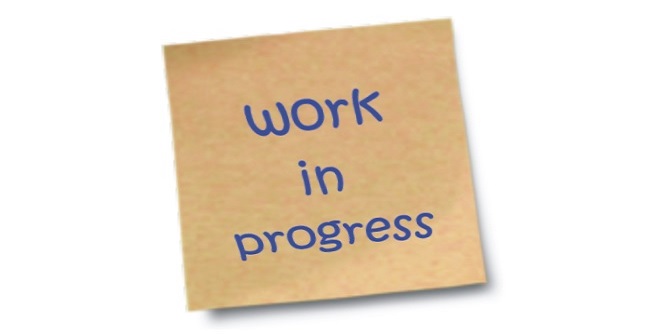As an LSE student you might be familiar with hearing about the career plans of your friends and those on your course who seem to know what they want to do following their degree. They might even have a job lined up for after graduation and their next three years planned out. So if you don’t, you might be thinking: How will I ever get a job?
You’re not on your own! Many of our career appointments were booked by students who are unsure of what to do. Often students seen in these appointments express peer pressure as being a catalyst for wanting to make a career plan, alongside a number of other reasons. Sometimes this pressure results in the following:
- making rushed applications to jobs that ‘seem alright’
- becoming nervous and panicked about their perceived lack of direction
- citing a job their friends are doing as their own preference without fully understanding what it involves
It’s OK to not know what you want to do
How you react to this statement will depend on your personality type. If you’re a planner or have perhaps always known your next step, this outlook might make you feel uncomfortable (and possibly a little irritated!).
However, not knowing what you want to do can often lead to something us careers consultants refer to as ‘happenstance’. Planned happenstance is a theory popularised by renowned careers theorist John Krumboltz (2009) who explains it, in its simplest form, as the ability to recognise and capitalise on the opportunities which arise from various life and work-related situations. In reality this might be in the form of:
- keeping your options open and applying to any interesting opportunities that are advertised or offered to you
- road testing career ideas through paid work experience or volunteering
- making contacts and speaking to people (building your network helps to increase the number of people you know and, in turn, the chance of unplanned opportunities occurring via them)
- being in the right place at the right time – aided by doing a combination of these preceding bullet points
Your career path
The first job you have out of university is unlikely to define you and your future career (stay with me on this one, as I’m sure you’re sick of hearing this!).
The traditional notion of a career for life is outdated; the Office for National Statistics (2003) found that in 2001 the average length in a job was four years. More recent data from the Deloitte Millennial Survey (2018) suggests that 61% of Generation Z employees expected to leave their current employer within 2 years. This relatively short employment average could indicate a level of happenstance in the UK labour market – it could be a result of employees becoming more self-aware, so seeking opportunities elsewhere.
In fact, in the 21st century, it is estimated the average worker will make 5-7 career changes over their working lifetime and this is likely to increase due to the changing priorities of the workforce. So, do any of us really have a clue what we want to do?! You’ll have several people on the postgraduate courses in your department who are making a career transition and using their studies as a way to do this. Ask them about their career journey – it will be likely varied, and anything but linear or predictable!
How to decide what to do
If you are keen to start thinking about steps that may help to bring you some clarity in your thinking, we’ve outlined some steps below:
- Brainstorm. One of the best ways to get started is to sit down with those who know you best and spend some time plotting potential career options. These can be as varied as you like, at this point there should be no limits to your thinking. You could use a mind map to consider the kind of roles you’re willing to do, the type of environment and company culture you’re looking for, through to any specific organisations that have stood out to you in the past.It can be helpful to look back at your career decision making to date and try to connect the dots as to why you have made the choices you have to get to this point. For example, why did you choose the LSE? How did you select which course to take? Understanding these choices can help you understand what is important for you going forward. If you’re interested in exploring more, we have lots of resources on the career planning part of the website to help you work out the best career fit for you.
- Research. Once you’ve identified some areas you might be interested in, you can start the research. Attend LSE Careers events, look out for trends in the sector and use the organisations’ websites and professional bodies to help gain labour market information and self-knowledge.
- Talk to people. Once you have some ideas in mind – get talking to people. Conduct career conversations with people who will either support you in your career research or provide you with key information. This could involve participants at career events, interviewing a LinkedIn alum contact, or booking an appointment with a career consultant.
- Get a feel for the work. Brainstorming and talking to people to get a feel for the work are one thing but if you really want to get a feel for a job then it’s best to try and gain some experience and skills in the workplace This might involve organising a work shadowing opportunity with an alum, organising an employer site visit, or volunteering to gain experience of a particular activity or sector.
- Be creative and curious. As an LSE student, your analytical skills and intellectual curiosity are well above the average. Give yourself permission and the space to apply these skills to your career decision making process. Understanding how external influences and your learning will impact how your career develops.
- Ask for help. Your career decisions will form part of a lifelong journey – we all need help to make the best decisions
How we can help
Whilst you might be happy to follow happenstance, or be someone who moves jobs to find what you seek, it’s always worth speaking with one of the careers consultants here at LSE Careers. We’ll listen to your career thoughts and concerns and talk to you about what may be right for you, in terms of how targeted you would or would not like your next move to be, and help you formulate some next steps. Book in to speak to one of us on CareerHub.
Remember, it’s alright to not know what you want to do!





